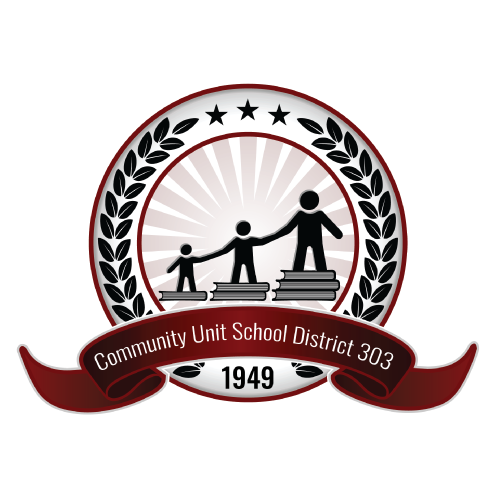About Student Programs
Responsibilities of the Department of Student Programs include the management of the English Language Learner (ELL) programs, Health Services, Homebound/Home Hospital services, Homeless/McKinney Vento services, Parent University, and the management of all grants.
Title I Information
What is Title I?
Every Student Succeeds Act
Title I is a federally funded program which provides supplemental funds to schools to assist eligible students to meet their educational goals. The Every Student Succeeds Act (ESSA) of 2015, reauthorizes the Elementary and Secondary Education Act (ESEA), the nation’s education law and longstanding commitment to equal opportunity for all students. St. Charles Community Unit School District 303’s Title I program focuses on early intervention and supplemental programs/resources in the areas of reading, math, and social-emotional learning.
Additional information can be found on the Illinois State Board of Education’s website www.isbe.net.
Which Schools are Title I?
How are the funds used?
Schoolwide Programs support all students in the school. Title I is not a standalone program, but is coordinated with other district, state and federal programs to drive improved achievement in the schools. Title I funds can be used to provide additional student programs, professional development for teachers, and a variety of parent and family programs.
Targeted Assistance Programs may only support students who are at risk of not meeting their educational goals as measured by district and state assessments. Title I is not a standalone program, but is coordinated with other district, state and federal programs to drive improved achievement in the schools. Title I funds can be used to provide additional student, teacher and parent resources in our schools and extensive professional development for teachers.
How can I get involved?
School, family and community partnerships can take many forms. In our district, we value and encourage parental involvement at all levels of participation. Please contact your school principal to learn more.
Title I District Parent Compact
For more information regarding Title I, contact Tracy Taylor-Moore, ESSA Grants Administrator:
- 331-228-3081
- tracy.taylor-moore@d303.org

